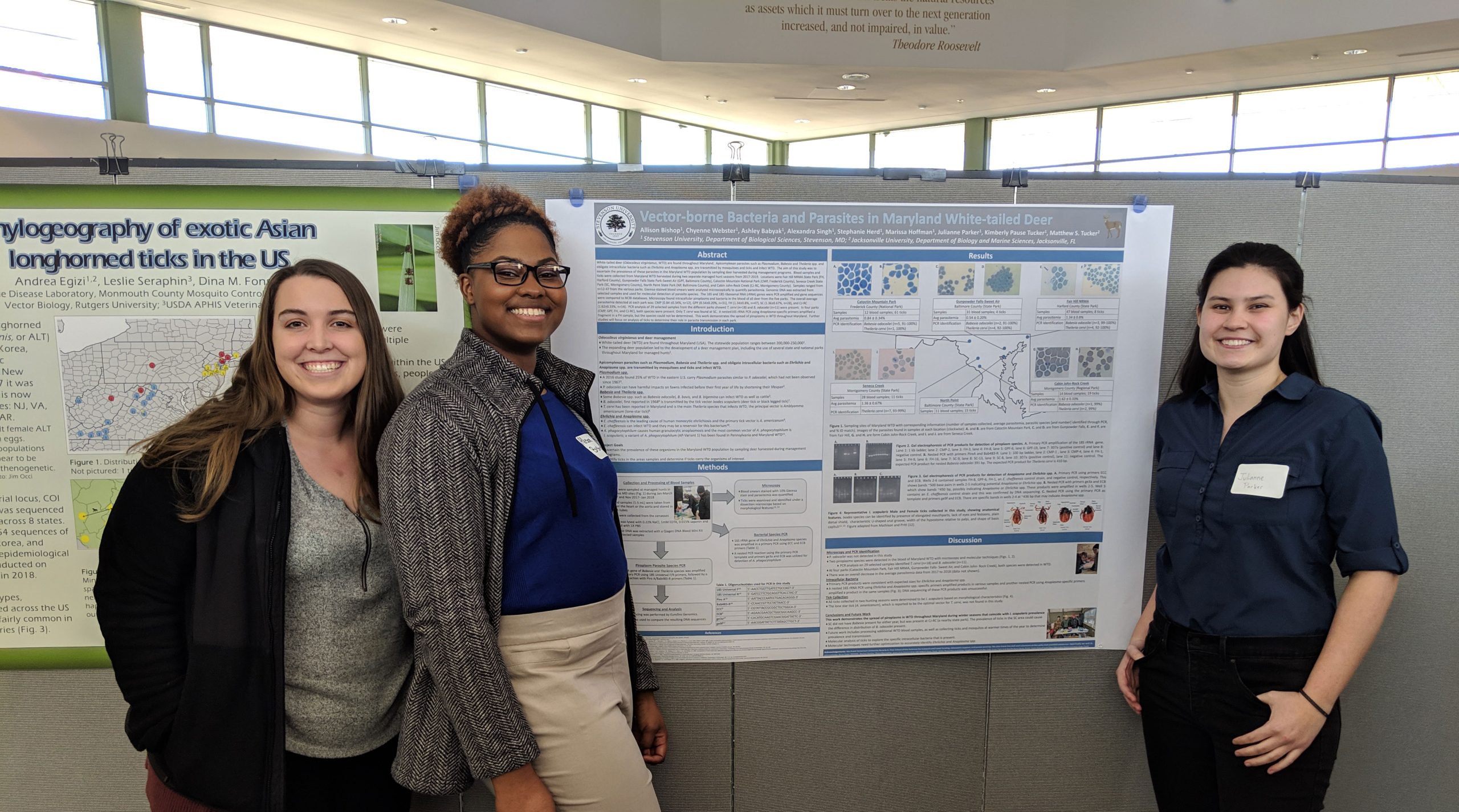Stevenson Receives Tick Research Grant

Researchers at Stevenson University and Johns Hopkins University have been awarded a $47,750 grant from the Lyme Disease Research Foundation to collect and study ticks from parks throughout Maryland this summer and fall to learn if they harbor the Lyme bacteria (Borrelia burgdorferi), as well as other important pathogens.
Stevenson University Assistant Professor of Biological Sciences, Dr. Kim Tucker and Johns Hopkins University School of Medicine Professor of Medicine, Dr. Mark Soloski are collaborators on this research. Dr. Tucker explained, “It is important to learn about the distribution and variety of pathogens being carried by the ticks, as well as to monitor this over time. Researchers are also only just beginning to understand the interaction effects among the tick microbiome. We also hope to shed some light on this with our research.”
This project also represents a significant training opportunity for undergraduate researchers at Stevenson University. Undergraduate research is considered to be a high-impact educational practice and an important way that college educators can provide exceptional learning experiences. Scientists at Stevenson University always involve their students in their research. Dr. Tucker and her collaborator, Dr. Matthew Tucker, have worked with students on a pilot study over the past three years to examine the tick-borne pathogens present in Maryland white-tailed deer.
Stevenson research student Allison Bishop ‘19 reflected, “I have been able to learn valuable field and laboratory research skills. Additionally, I was able to proudly present my contribution to this study at the 2019 Tick Summit and meet top researchers in the field.”
The new funding will greatly expand on this research, including providing training opportunities this summer through the competitive Summer Science Scholars’ Research Program (S3RP).
S3RP student Heather Bowie, stated “I am extremely excited to be a part of this summer’s tick research. I look forward to using my environmental science background and also learning new molecular biology techniques while gaining an understanding of tick-borne illnesses and their prevalence in Maryland.”
May is Lyme Disease Awareness Month. To honor those in the community who have suffered from this disease, individuals should educate themselves about it. Prevention of tick bites is the best strategy to beat Lyme disease. While in the great outdoors this summer, individuals should use tick repellent, wear protective clothing, and check themselves for ticks. Blacklegged ticks, the ticks that carry the Lyme disease bacteria, are very small especially in their nymph stage. Adults are about the size of a sesame seed and the nymphs are smaller than a poppy seed. If a person is bitten by a blacklegged tick, it should be removed immediately and the wound should be washed to reduce the risk of transmission. Symptoms should be monitored for the next two weeks and individuals should consult with their healthcare provider about sending the tick for testing and next steps.





